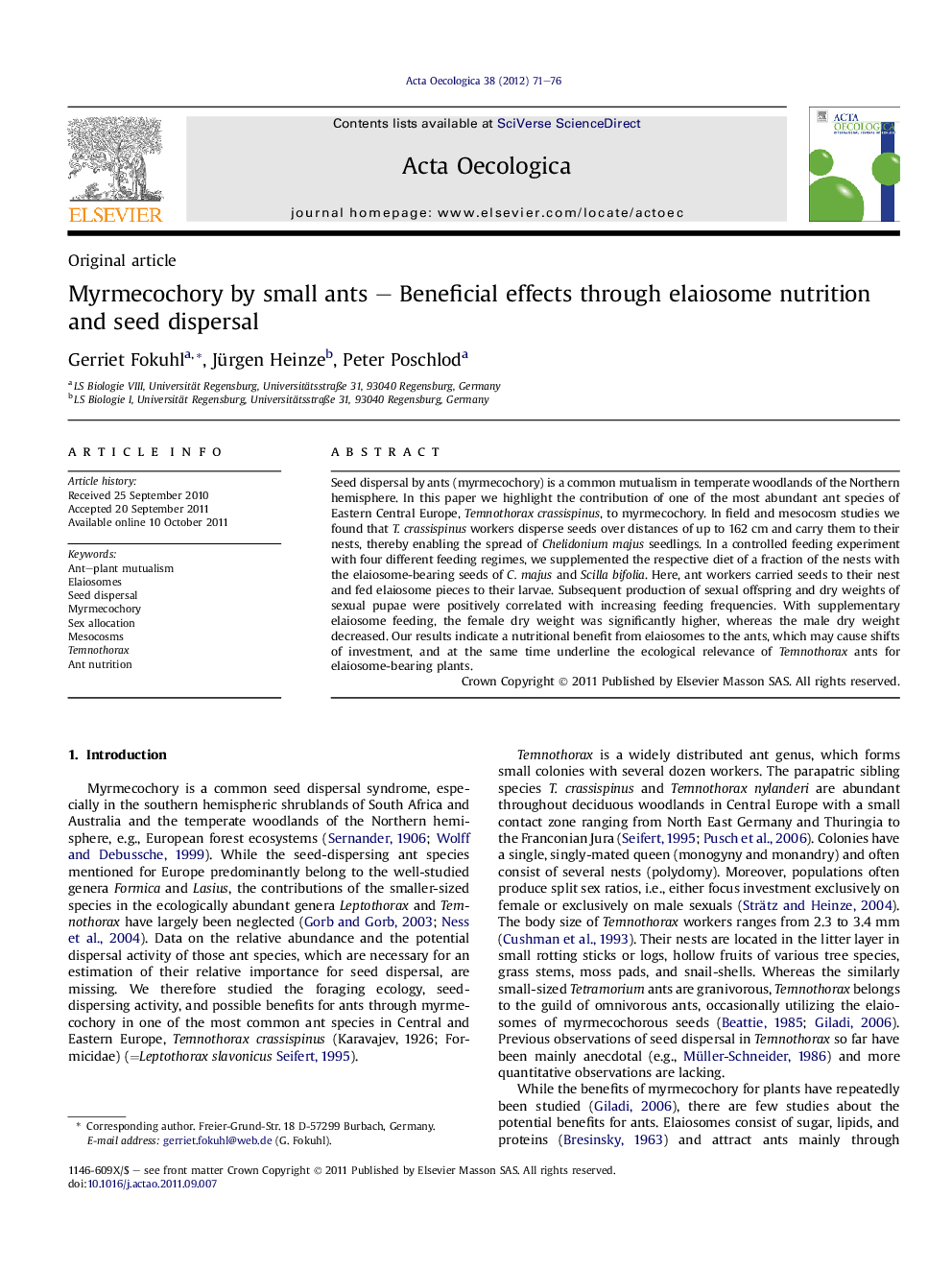| Article ID | Journal | Published Year | Pages | File Type |
|---|---|---|---|---|
| 4381249 | Acta Oecologica | 2012 | 6 Pages |
Seed dispersal by ants (myrmecochory) is a common mutualism in temperate woodlands of the Northern hemisphere. In this paper we highlight the contribution of one of the most abundant ant species of Eastern Central Europe, Temnothorax crassispinus, to myrmecochory. In field and mesocosm studies we found that T. crassispinus workers disperse seeds over distances of up to 162 cm and carry them to their nests, thereby enabling the spread of Chelidonium majus seedlings. In a controlled feeding experiment with four different feeding regimes, we supplemented the respective diet of a fraction of the nests with the elaiosome-bearing seeds of C. majus and Scilla bifolia. Here, ant workers carried seeds to their nest and fed elaiosome pieces to their larvae. Subsequent production of sexual offspring and dry weights of sexual pupae were positively correlated with increasing feeding frequencies. With supplementary elaiosome feeding, the female dry weight was significantly higher, whereas the male dry weight decreased. Our results indicate a nutritional benefit from elaiosomes to the ants, which may cause shifts of investment, and at the same time underline the ecological relevance of Temnothorax ants for elaiosome-bearing plants.
► We examine the contribution of Temnothorax crassispinus to myrmecochory. ► In field and mesocosm studies we found workers disperse seeds up to 162 cm. ► In a feeding experiment workers fed elaiosome pieces to larvae. ► With elaiosome supplementation, the female dry weight got significantly increased. ► Our results underline the ecological relevance of myrmecochory with Temnothorax.
